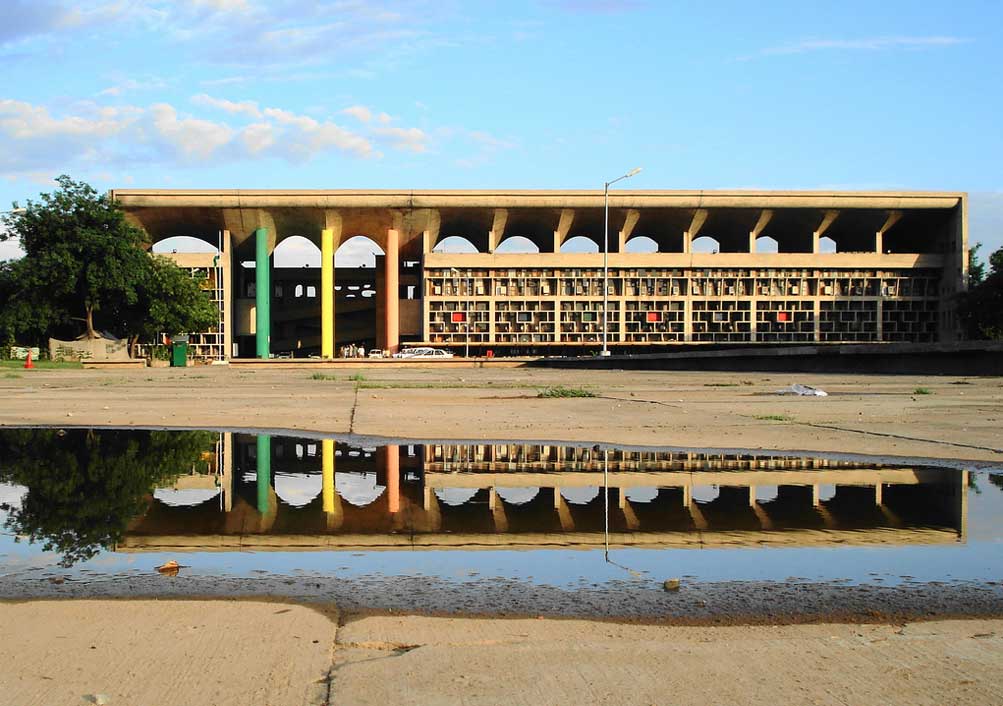No part of police stations including interrogation room would be left uncovered by CCTV surveillance: P&H HC while directing installation of CCTVs as per directions issued by Supreme Court

Read Order: Kaushal v. State of Haryana and Others
Monika Rahar
Chandigarh, January 14, 2022: While dealing with a petition against the inhuman treatment meted out against an accused in jail by investigating agency, the Punjab and Haryana High Court has directed a meticulous following of all provisions of the Cr.P.C., including Section 41-B, 41-C, 41-D and 54, 55 and 55-A and observed that no part of police stations including interrogation room would be left uncovered by CCTV surveillance.
The Bench of Justice Amol Rattan Singh has also directed that compliance reports in that regard be made a part of the report under Section 173 of the Cr.P.C. It was also held that the non-compliance of these provisions would amount to a violation of these directions and thus, an accused would have a remedy against it.
While also directing the strict implementation of Supreme Court’s directions given in Paramvir Singh Saini v. Baljit Singh and Others, the Bench of Justice Amol Rattan Singh said, “Consequently and obviously, non-compliance of the directions issued by the Supreme Court in Paramvir Singh Sainis’ case, would amount to contempt of Court and this court would, naturally, also be bound to ensure that the directions issued by the Supreme Court are actually carried out at ground level by the States and Union Territory falling within the jurisdiction of this court. Hence, the aforesaid direction to the DGPs.”
In this case, the petitioner leveled serious allegations against the officials of the investigating agencies for subjecting him to inhumane and barbaric treatment in jail. He contended that officials of the investigating agency urinated on the face and body; forced him to be naked throughout the remand; gave him merciless beatings; inserted sharp objects in his private parts; gave him electric shocks; and hanged him upside down with a rope for the entire period of remand.
Therefore, the petitioner prayed before the Court to direct the respondent to do videography of the journey that he is made to undertake from his jail to the Police Station where he is taken for interrogation and also of the interrogation to which he is subjected. He also prayed for the conduct of his medical examination during such interrogation to reveal any torture done to him. Further, he prayed for his family or lawyer to be informed of his location whenever he is taken outside the jail on remand. He also sought the presence of adequate security to prevent any attempt at his encounter killing and lastly, he sought compliance with Section 31 of the Prisons Act, 1894.
The DGPs of Punjab and Haryana denied these allegations in their respective affidavits. As regards the installation of video cameras in all police stations, it was stated that CCTV cameras were installed in all entry and exit gates of prisons and all police stations pursuant to Supreme Court directions in Paramvir Singh Saini’s case (Supra).
After reiterating the findings of Paramvir Singh Saini’s case (Supra), the High Court observed that since the Supreme Court itself directed installation of cameras at not just entry and exit points and main gates of police stations, but also in all lock-ups, corridors, lobby and reception areas, verandas, rooms of officials, outside the lock-up rooms, station hall and in front of the police station compound, as also outside toilets, therefore, the obvious implication was that no part of the police stations was to be left uncovered by CCTV surveillance. Naturally, therefore, any interrogation room would also be covered by such directions.
Further, addressing respondents’ argument on the absence of any provision in Cr.P.C. for installation of cameras, the Court opined that as per Article 142 of the Constitution of India, the Supreme Court, in the exercise of its jurisdiction, may pass such decree or order as is necessary for doing complete justice in any cause or matter pending before it, and any order or decree so passed would be enforceable throughout the territory of India. Further, the law declared by the Supreme Court would be binding on all courts as per Article 141. Thus, the Court directed the implementation of law laid down by Top Court in Paramvir Singh Saini’s case (Supra).
While appreciating the work done by Police in dealing with criminals, specially hardened criminals, the Court observed that as per the constitutional scheme and the statutory provisions framed thereunder in India, not even the worst criminal can be denied a fair procedure in terms of the statutory provisions laid down in the Code of Criminal Procedure, 1973, and any such law in force.
“Hence, violation of such procedure, especially leading to violation of human rights even in the case of the worst criminal, cannot be ignored by any court”, opined the Bench.
The Court adjourned the matter with the above-mentioned directions.
Sign up for our weekly newsletter to stay up to date on our product, events featured blog, special offer and all of the exciting things that take place here at Legitquest.




Add a Comment